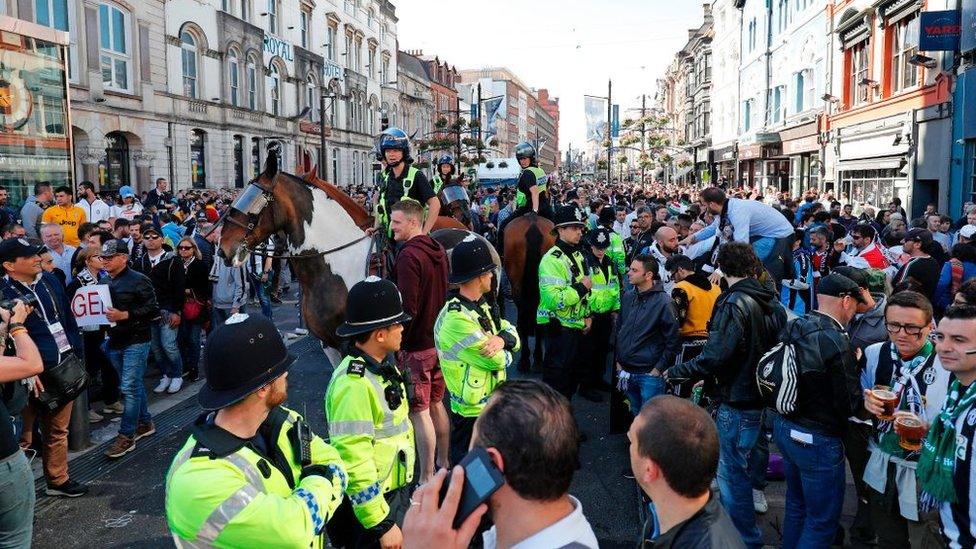South Wales football derby: Facial ID technology sparks police row
- Published

The last five derbies - dating back to 2010 - have passed without major incident
The use of facial recognition technology at football matches has sparked a row between two senior police figures.
Arfon Jones, the North Wales police and crime commissioner, is an outspoken critic of the "invasive" surveillance.
But he has been accused of "using his office to spread misinformation" by his South Wales counterpart.
South Wales Police is to use the ID system at Sunday's Wales derby between Cardiff City and Swansea City.
Civil liberties and fans groups have also criticised the use of the technology at this fixture for the second time in less than three months.
Following the derby in October, Mr Jones, who served as a police officer for 30 years, said the surveillance was a "step too far" and created the potential for miscarriages of justice.
"It is invasive, disproportionate and has the ability to reduce confidence in our policing," he added.
But South Wales Police said the technology was only used to identify and prevent fans previously issued with banning orders from attending the Championship game at Cardiff City Stadium.
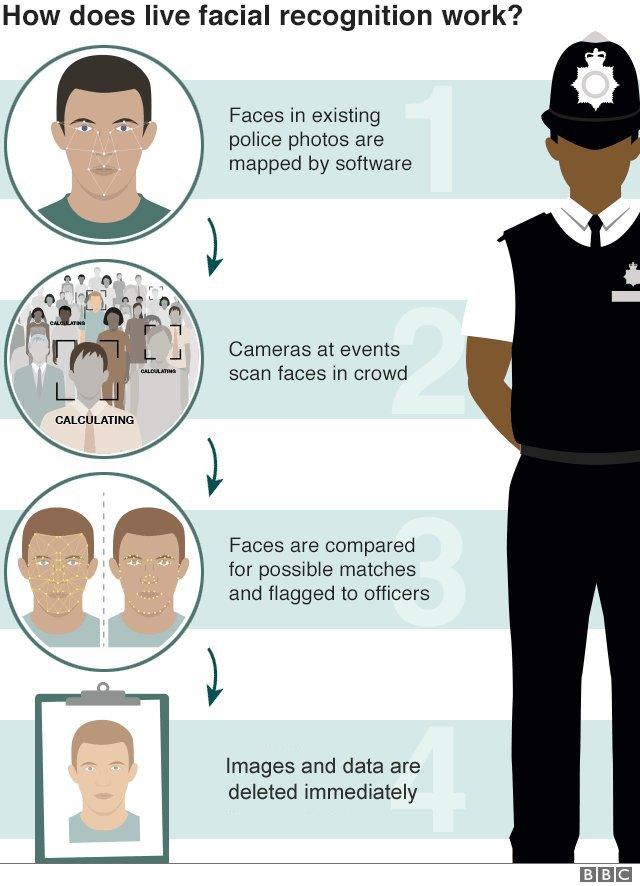
Alun Michael, the South Wales police and crime commissioner, said Mr Jones' comments were inaccurate.
He said: "It is incomprehensible that [he] should not support measures which keep football fans safe and able to attend games secure in the knowledge that everything is being done to keep them safe.
"The statements made have been littered with inaccuracies in respect of both the technology and the law."
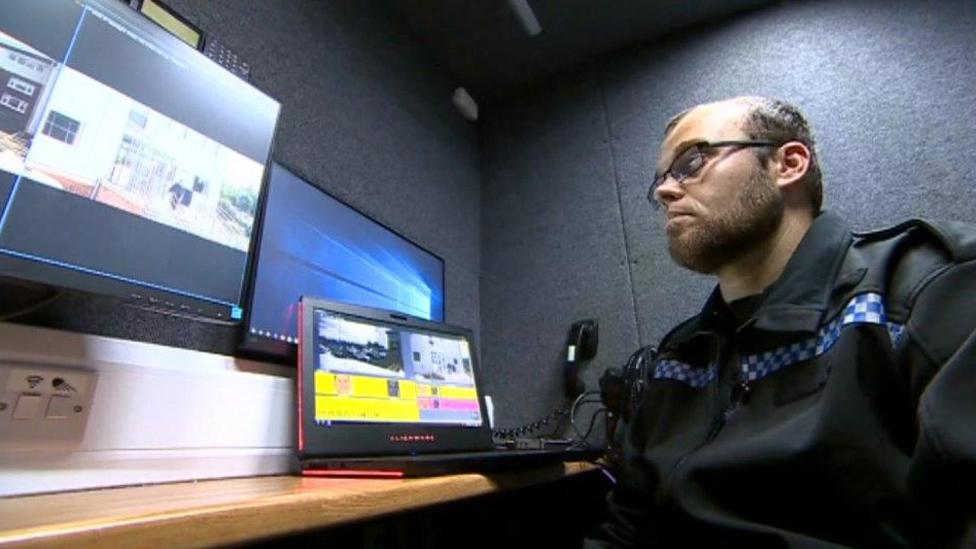
South Wales Police said the data of all those captured by the technology on Sunday not on the "watch list" would be immediately deleted
However the Football Supporters' Association Wales said the use of facial recognition treated fans like criminals.
It urged spectators to wear Halloween masks in protest to the October fixture.
Spokesman Vince Alm said: "It's unbelievable that police are targeting us with facial recognition surveillance again.
"Fans coming out for a local football match, including hundreds of families and children, will be treated like they're in a police line-up and have their faces scanned without their consent."
Campaign group Big Brother Watch said, external "dangerous mass surveillance treats all fans as suspects, erodes public freedoms and wastes public money," and should be banned.
Judges ruled against a shopper from Cardiff who brought a legal challenge against police use of automated facial recognition (AFR) technology earlier this year.

Banning orders prevent fans convicted of football-related offences from attending games

Analysis by Jenny Rees, BBC Wales home affairs correspondent
South Wales Police will have hoped the High Court hearings and conclusion about their use of AFR put these concerns to bed.
Their practices were scrutinised thoroughly - and reported widely. It doesn't mean concerns were quelled.
Here they are again, trying to correct what the PCC describes as "misinformation". But the fact that it's criticism from another PCC is significant. Both North Wales and Dyfed-Powys Police forces' commissioners have spoken out about their concerns about AFR.
It suggests there is either widespread misunderstanding or mistrust of the technology.

South Wales Police Assistant Chief Constable, Andy Valentine, said the data of all those captured by the technology on Sunday not on the "watch list" would be immediately deleted.
"Football banning orders are issued by the court to those who have misbehaved at a previous football game and hence this provides us with a clear rationale in our strategy to prevent any crime and disorder," he said.
Five people were arrested for minor public order offences, common assault and invading the pitch, in the last meeting between the teams.
- Published20 December 2019
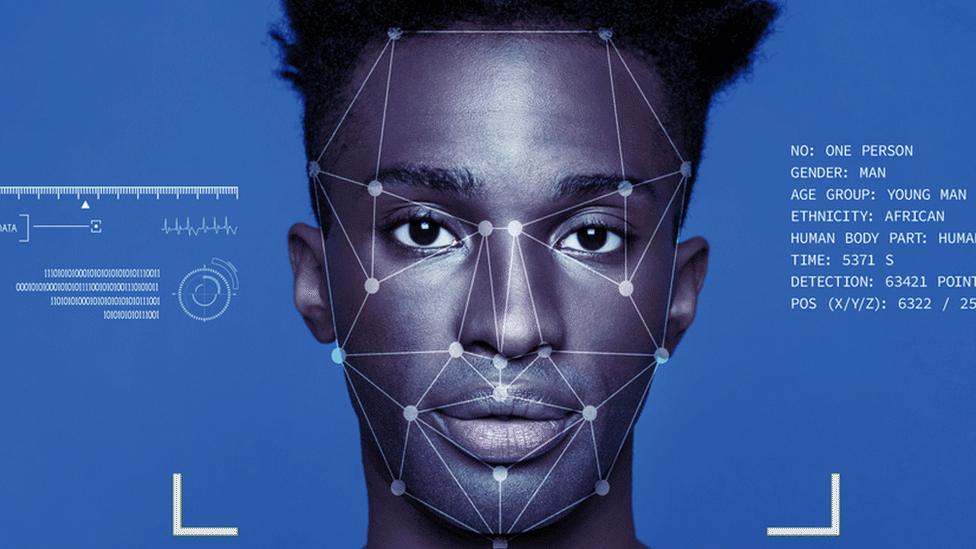
- Published27 October 2019

- Attribution
- Published24 October 2019

- Published4 September 2019
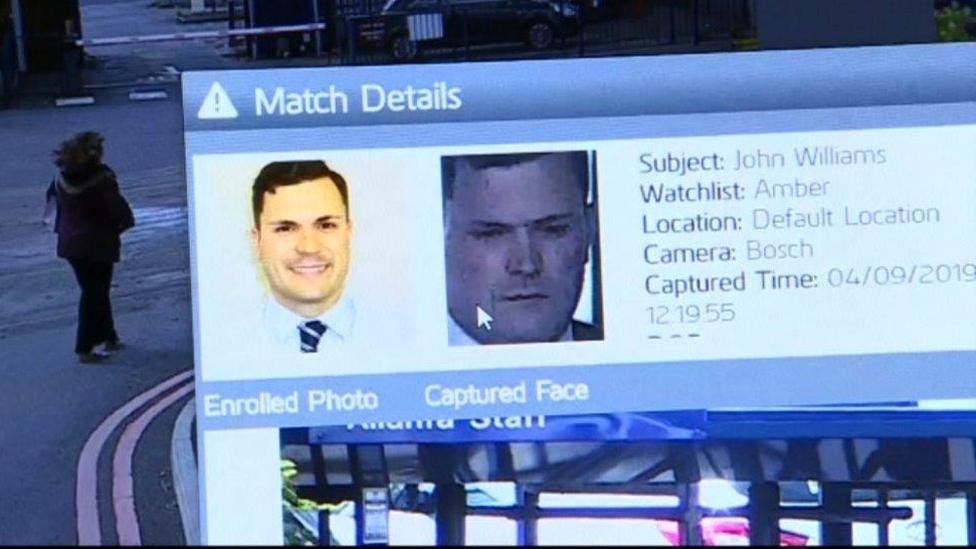
- Published19 June 2019

- Published21 May 2019

- Published15 May 2019
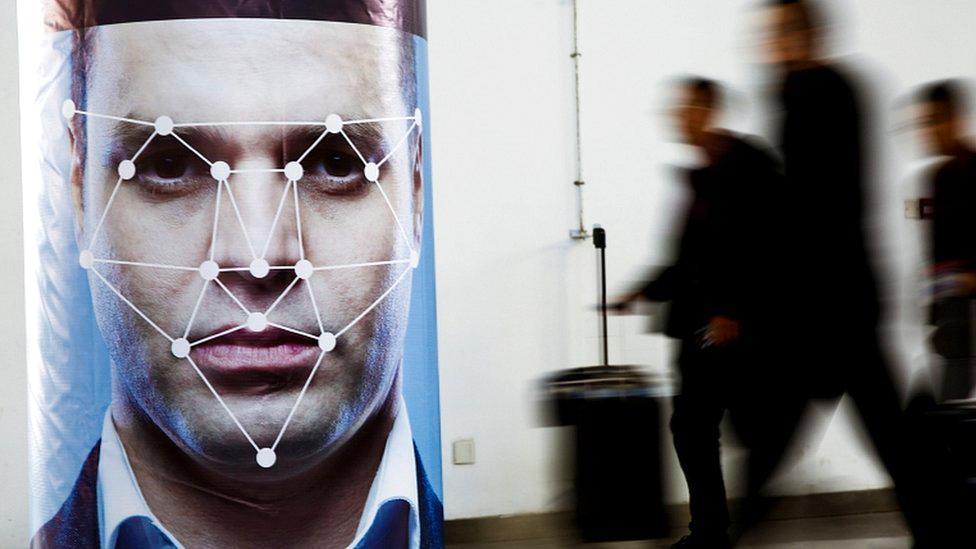
- Published4 May 2018
